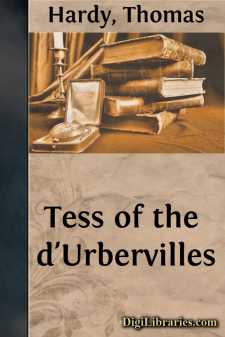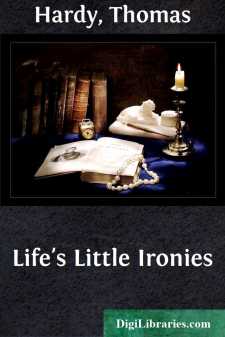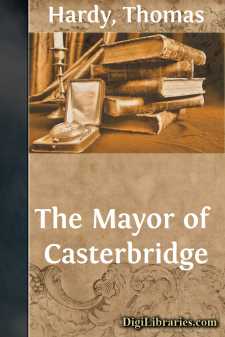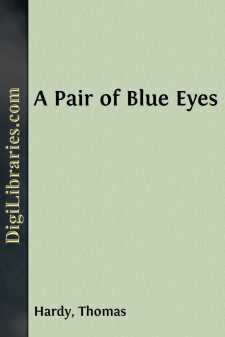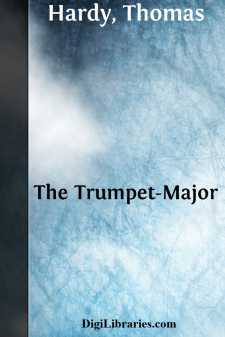Categories
- Antiques & Collectibles 13
- Architecture 36
- Art 48
- Bibles 22
- Biography & Autobiography 813
- Body, Mind & Spirit 142
- Business & Economics 28
- Children's Books 17
- Children's Fiction 14
- Computers 4
- Cooking 94
- Crafts & Hobbies 4
- Drama 346
- Education 46
- Family & Relationships 57
- Fiction 11829
- Games 19
- Gardening 17
- Health & Fitness 34
- History 1377
- House & Home 1
- Humor 147
- Juvenile Fiction 1873
- Juvenile Nonfiction 202
- Language Arts & Disciplines 88
- Law 16
- Literary Collections 686
- Literary Criticism 179
- Mathematics 13
- Medical 41
- Music 40
- Nature 179
- Non-Classifiable 1768
- Performing Arts 7
- Periodicals 1453
- Philosophy 64
- Photography 2
- Poetry 896
- Political Science 203
- Psychology 42
- Reference 154
- Religion 513
- Science 126
- Self-Help 84
- Social Science 81
- Sports & Recreation 34
- Study Aids 3
- Technology & Engineering 59
- Transportation 23
- Travel 463
- True Crime 29
Two on a Tower
by: Thomas Hardy
Categories:
Description:
Excerpt
PREFACE.
This slightly-built romance was the outcome of a wish to set the emotional history of two infinitesimal lives against the stupendous background of the stellar universe, and to impart to readers the sentiment that of these contrasting magnitudes the smaller might be the greater to them as men.
But, on the publication of the book people seemed to be less struck with these high aims of the author than with their own opinion, first, that the novel was an ‘improper’ one in its morals, and, secondly, that it was intended to be a satire on the Established Church of this country. I was made to suffer in consequence from several eminent pens.
That, however, was thirteen years ago, and, in respect of the first opinion, I venture to think that those who care to read the story now will be quite astonished at the scrupulous propriety observed therein on the relations of the sexes; for though there may be frivolous, and even grotesque touches on occasion, there is hardly a single caress in the book outside legal matrimony, or what was intended so to be.
As for the second opinion, it is sufficient to draw attention, as I did at the time, to the fact that the Bishop is every inch a gentleman, and that the parish priest who figures in the narrative is one of its most estimable characters.
However, the pages must speak for themselves. Some few readers, I trust—to take a serious view—will be reminded by this imperfect story, in a manner not unprofitable to the growth of the social sympathies, of the pathos, misery, long-suffering, and divine tenderness which in real life frequently accompany the passion of such a woman as Viviette for a lover several years her junior.
The scene of the action was suggested by two real spots in the part of the country specified, each of which has a column standing upon it. Certain surrounding peculiarities have been imported into the narrative from both sites.
T. H.
July 1895.
I
On an early winter afternoon, clear but not cold, when the vegetable world was a weird multitude of skeletons through whose ribs the sun shone freely, a gleaming landau came to a pause on the crest of a hill in Wessex. The spot was where the old Melchester Road, which the carriage had hitherto followed, was joined by a drive that led round into a park at no great distance off.
The footman alighted, and went to the occupant of the carriage, a lady about eight- or nine-and-twenty. She was looking through the opening afforded by a field-gate at the undulating stretch of country beyond. In pursuance of some remark from her the servant looked in the same direction.
The central feature of the middle distance, as they beheld it, was a circular isolated hill, of no great elevation, which placed itself in strong chromatic contrast with a wide acreage of surrounding arable by being covered with fir-trees. The trees were all of one size and age, so that their tips assumed the precise curve of the hill they grew upon. This pine-clad protuberance was yet further marked out from the general landscape by having on its summit a tower in the form of a classical column, which, though partly immersed in the plantation, rose above the tree-tops to a considerable height. Upon this object the eyes of lady and servant were bent....




